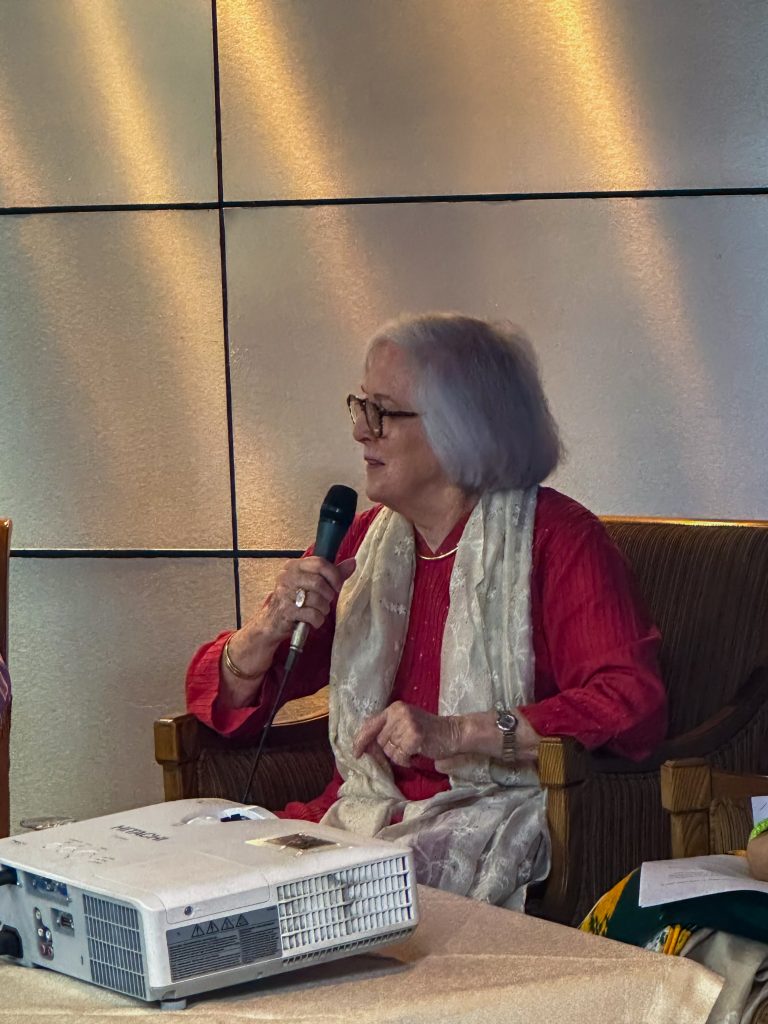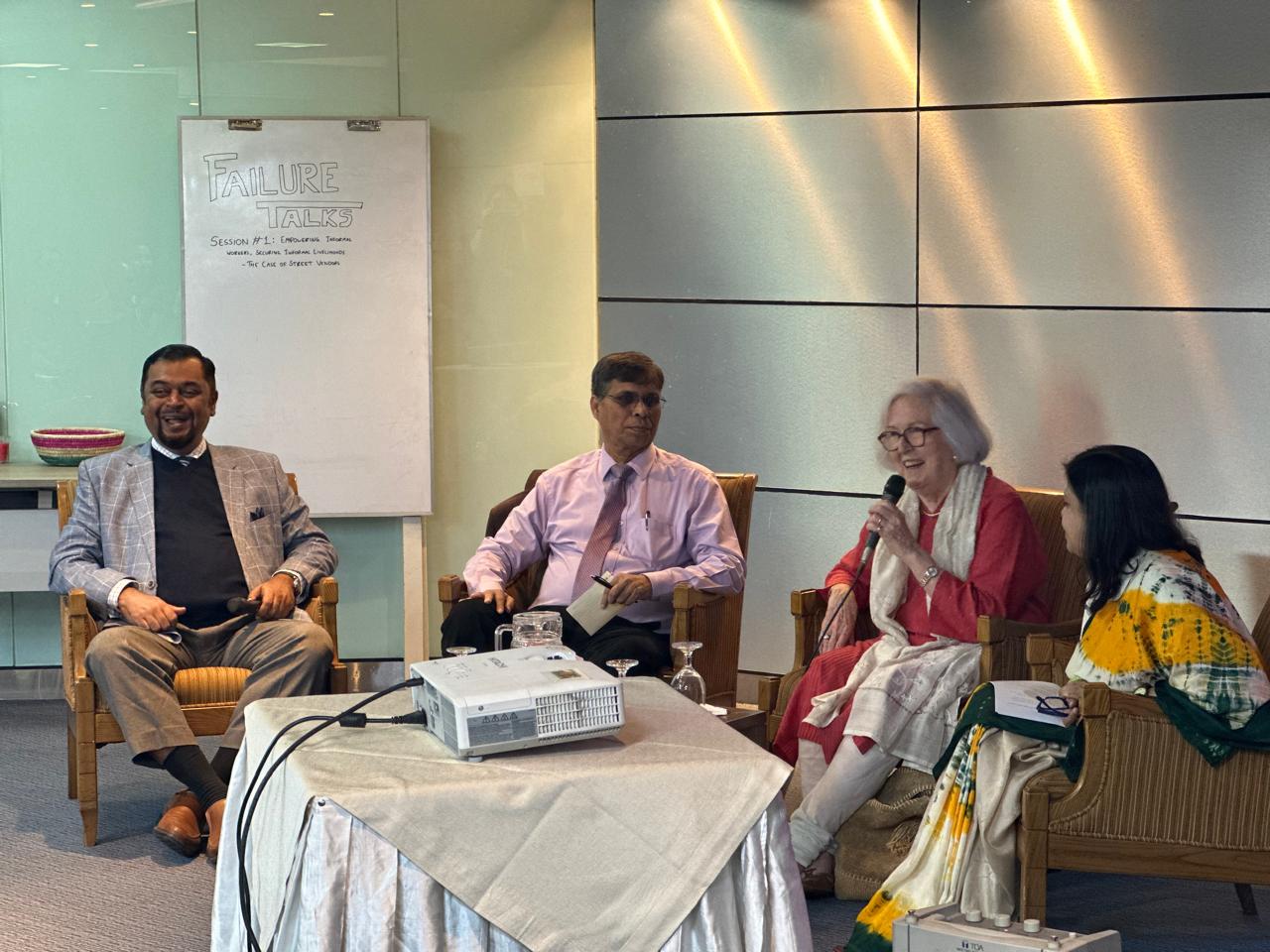In its valiant effort to destigmatise failure, BRAC Social Innovation Lab (SIL) launched the first of many “Failure Talks” to take these discussions beyond pages and two-year cycles, making them an integral part of everyday reflections and operations. People from various parts of the BRAC ecosystem gathered to discuss how their experiences shape this ongoing learning process.
The panel, moderated by KAM Morshed, Senior Director of Advocacy, Innovation & MEAL, featured insightful discussions from Dr. Martha Chen, Associate at the Mittal South Asia Institute, Harvard University; Co-founder and Board Member of WIEGO; Board Chair of BRAC Global; and Board Chair of UNU WIDER; Md. Liakath Ali, Director of CCP, UDP, and DRMP at BRAC; and Shashwatee Biplob, Associate Director of SELP at BRAC.
“We all agree that the development sector is the riskiest of all businesses. You’re joking if you say we don’t deal with failures when handling such risky activities,” remarked KAM Morshed, Senior Director, Advocacy, Innovation & MEAL, setting the tone for the hour-and-a-half-long discussion.
Reflecting on how learning became ingrained in BRAC’s DNA, Dr Martha Chen, Chair of the BRAC Global Board, discussed how a project focused on building community-level organisations led to innovations like poultry vaccination in the remotest areas of Bangladesh, transported via bananas. These innovations were only possible because the culture of embracing failure, learning from it, testing iterations, and learning again has been woven into the fabric of BRAC’s culture since BRAC came to be.

She also emphasised that while falling seven times and standing up eight is important, it’s equally vital to know when to admit defeat and allocate resources to other solutions; here, the acceptance of failure plays a key role.
The conversation then shifted to focus on formalising street vendors in Dhaka, a massive challenge first undertaken by BRAC’s Urban Development Programme (UDP), led by Md. Liakath Ali, Director, BRAC UDP. He shared that difficulties arose from the initial pilot location selection—Mirpur-10, a cramped area with one of the largest street vendor hubs in Dhaka. Although government bodies had promised support to ensure the pilot participants wouldn’t face difficulties, these promises were unfulfilled, contributing to the prototype’s failure. A key lesson here was understanding the importance of trust among the diverse stakeholders involved. If stakeholders don’t believe in the intervention, it becomes a major obstacle, pushing success further out of reach.
She then shared her experiences from SEWA, a trade union in India that supports women in the informal sector, and WIEGO, a global organisation advocating for the rights of informal workers. She highlighted how SEWA’s success in including informal workers in the Indian labour regulations took over a decade—emphasising that such challenges require both time and local support. She described it as a “continuous cycle of two steps forward, one step backward,” underscoring the importance of persistence when organising the informal sector in a world filled with systemic barriers.
The next leader of the challenge to formalise informal workers is BRAC’s Social Empowerment and Legal Protection (SELP) programme. Its Associate Director, Shashwatee Biplob, took the stage to discuss BRAC’s next steps in organising the informal sector. She explained that a bottom-up approach, involving local recognition of the problem, is crucial. When participants, such as street vendors, see the benefits of changing the status quo, they are more likely to engage. She emphasised that the current initiative is not just a typical intervention but a movement focused on uplifting the voices of micro-clients and understanding their livelihoods.
“You don’t know when your goal will be achieved. Planning is always evolving,” said Shashwatee Biplob.

She elaborated on how SEWA still has a long way to go in securing full rights for informal workers. Creating an effective movement, she noted, cannot be confined to a fixed timeline because, as knowledge expands, so does the understanding of the problem and the evolving solution.
The first of many Failure Talks concluded with a celebration of BRAC’s ability to learn from failure—just as much as from success—and a promise of more talks to follow.
